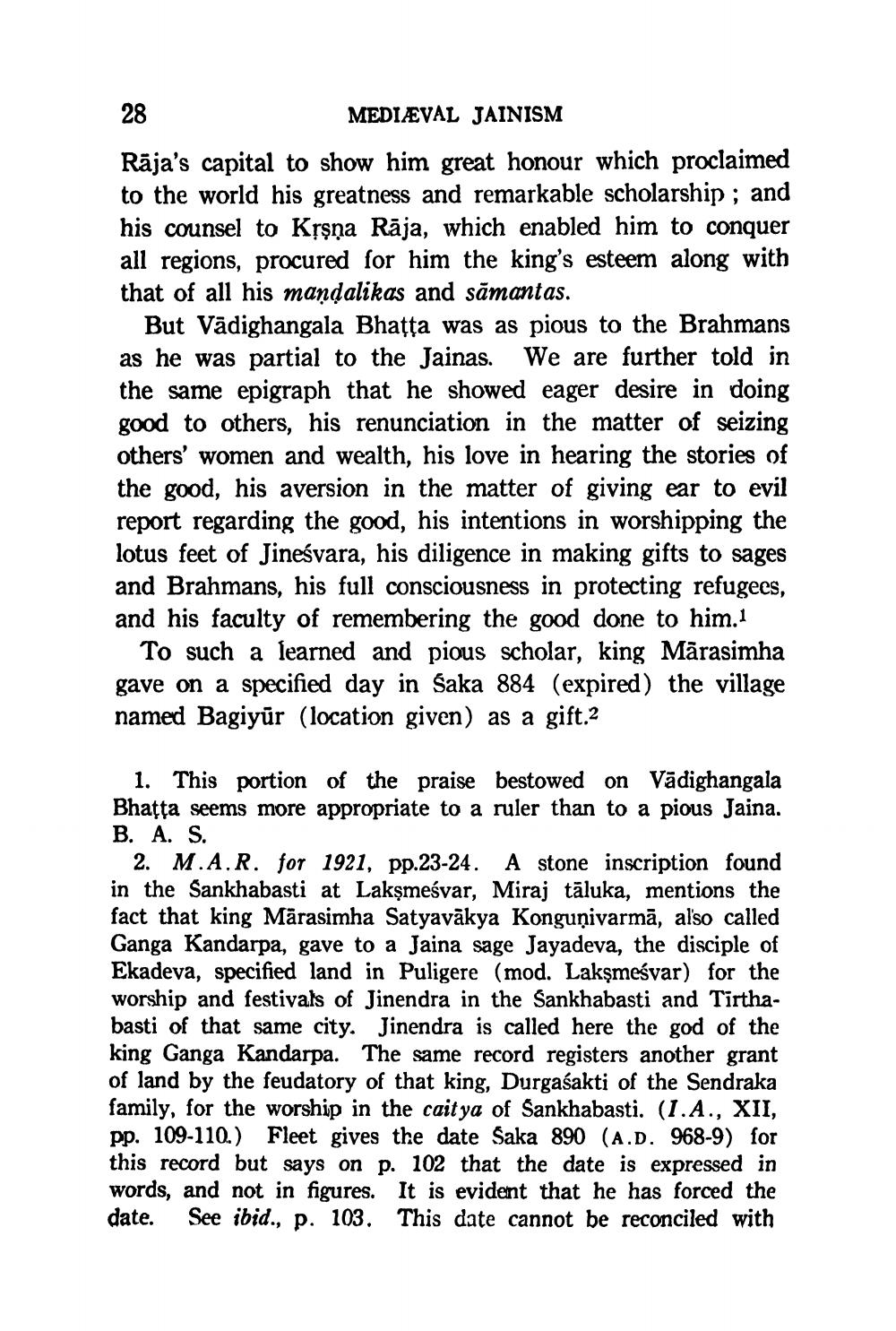________________
MEDIÆVAL JAINISM
Rāja's capital to show him great honour which proclaimed to the world his greatness and remarkable scholarship ; and his counsel to Krşņa Rāja, which enabled him to conquer all regions, procured for him the king's esteem along with that of all his mandalikas and sãmantas.
But Vādighangala Bhatta was as pious to the Brahmans as he was partial to the Jainas. We are further told in the same epigraph that he showed eager desire in doing good to others, his renunciation in the matter of seizing others' women and wealth, his love in hearing the stories of the good, his aversion in the matter of giving ear to evil report regarding the good, his intentions in worshipping the lotus feet of Jineśvara, his diligence in making gifts to sages and Brahmans, his full consciousness in protecting refugees, and his faculty of remembering the good done to him.1
To such a learned and pious scholar, king Mārasimha gave on a specified day in Saka 884 (expired) the village named Bagiyūr (location given) as a gift.2
1. This portion of the praise bestowed on Vādighangala Bhatta seems more appropriate to a ruler than to a pious Jaina. B. A. S.
2. M.A.R. for 1921, pp.23-24. A stone inscription found in the Sankhabasti at Lakşmeśvar, Miraj tāluka, mentions the fact that king Mārasimha Satyavākya Konguņivarmā, also called Ganga Kandarpa, gave to a Jaina sage Jayadeva, the disciple of Ekadeva, specified land in Puligere (mod. Lakşmeśvar) for the worship and festivals of Jinendra in the Sankhabasti and Tirthabasti of that same city. Jinendra is called here the god of the king Ganga Kandarpa. The same record registers another grant of land by the feudatory of that king, Durgaśakti of the Sendraka family, for the worship in the cait ya of Sankhabasti. (1.A., XII, pp. 109-110.) Fleet gives the date Saka 890 (A.D. 968-9) for this record but says on p. 102 that the date is expressed in words, and not in figures. It is evident that he has forced the date. See ibid., p. 103. This date cannot be reconciled with




